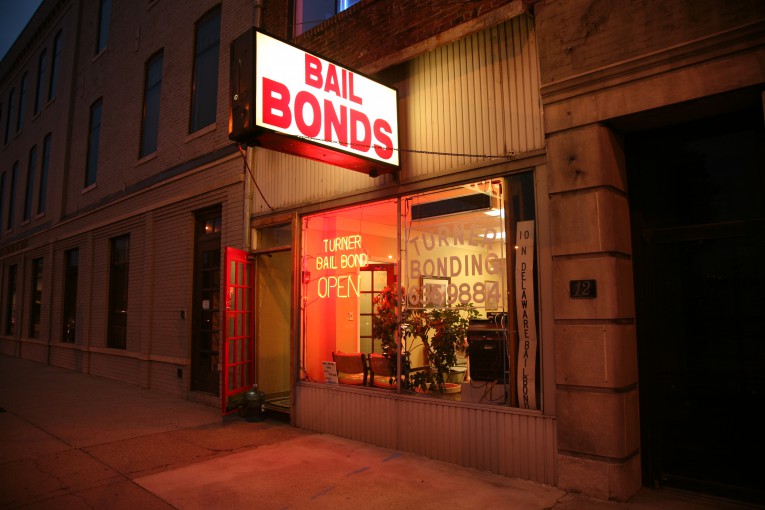

By Charles Fredrick
So here’s the T — as a community, we queer and trans folks are no strangers to criminalization and aggressive policing, be it by the actual police or society at large. Our very existence is often cause enough for suspicion. Whether it’s trying to figure out which bathroom we’re allowed to use, our HIV status, carrying condoms, trying to survive without stable housing or simply walking down the street, there doesn’t seem to be a shortage of examples of things we do that have landed us in jail.
When it comes to the justice system, the odds are stacked squarely against us. The money bail system is no different.
Bail and pretrial detention’s impact on our LGBT community
Money bail is wreaking havoc in our communities while the for-profit bail industry rakes in the big bucks.
They tell us that money bail is meant to promote community safety and make sure people show up to court for their hearings. But that’s not what’s happening. California’s current money bail system is actually not very effective at getting people to come back to court for their hearings. In fact, California has lower court appearance rates than the rest of the country.
In a state like California where the median bail amount is $50,000, it’s no surprise that many queer and trans folks — who already face a whole host of barriers to steady income and employment — get stuck in jail while awaiting trial merely because they can’t afford to pay. Just how long someone is stuck in jail varies from case to case but surveys have shown it can literally be years before ever going to trial. Even short stints in jail can result in people being fired from their jobs, evicted from their housing, and separated from their family. We know too that keeping someone in jail before their trial increases the chances that that person — even if they are innocent — will end up pleading guilty, being convicted, and receiving a longer sentence than if they had been released while their case worked its way through the courts. This is especially the case for queer and trans people of color.
a whole host of barriers to steady income and employment — get stuck in jail while awaiting trial merely because they can’t afford to pay. Just how long someone is stuck in jail varies from case to case but surveys have shown it can literally be years before ever going to trial. Even short stints in jail can result in people being fired from their jobs, evicted from their housing, and separated from their family. We know too that keeping someone in jail before their trial increases the chances that that person — even if they are innocent — will end up pleading guilty, being convicted, and receiving a longer sentence than if they had been released while their case worked its way through the courts. This is especially the case for queer and trans people of color.
Also — and this should go without saying — jail is no “safe space” for our community. LGBT people face high rates of discrimination, harassment, and sexual assault while held in custody. This is especially true for our trans sisters who are often given the choice between sitting in a men’s cell or being put into solitary confinement as a “protective custody” measure, further isolating them from support and resources necessary to fight their cases in court.
Desperate to get out of custody, many people are forced to go to a for-profit bail agency to pay for their release. These agencies, backed by predatory, multinational insurance corporations, trap people and their families in debt with nonrefundable fees and installment plans, making millions of dollars off of premiums alone. And get this: people are on the hook to pay, even if they’re found innocent or get their case dismissed. Yes, you read that correctly. The industry makes money no matter what.
Bailing out of concrete closets
The California Money Bail Reform Act, is set to reduce our state’s reliance on money bail and move us towards a system where people are directed to the services they need. Nationally, there’s also a growing movement, largely lead by visionary organizers of color — particularly Black, queer, and, trans folks — who are fighting to end money bail. Groups like the Movement for Black Lives, Southerners On New Ground, Black Youth Project 100 and many others are successfully exposing the for-profit bail industry while taking direct action to bring their loved ones home.
Together, we are demanding that our needs and safety be put before the profit interests of the private bail industry and we need your help! In California, we need to contact our assembly members and tell them why bail reform is important to us as members of the LGBT community. Nationally, you can bail out Black, queer, and trans folks by making a donation to the National Bail Out Fund. I hope you will do both. #NoJusticeNoPride
Charlie Fredrick is a Senior Organizer with the ACLU of Northern California.
